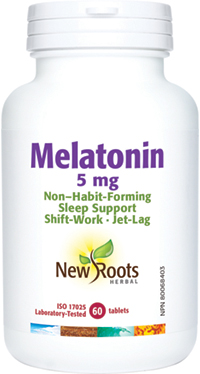-
Products
CategoryGender / Life StageHealth BenefitsRecommendedNew Products Amino Acids / Proteins Antioxidants Enzymes Essential Fatty Acids Exotic Skin Oils Functional Foods Glandular Extracts Herbs and Herbal Extracts Keto Diet Medicinal Mushrooms Probiotics Vitamins / Minerals50+ Health Children’s Health Gastrointestinal Conditions Maternity Men’s Health Women’s Fertility Women’s HealthBlood Glucose Management Cardiovascular Health Cholesterol Management Detoxification Digestive Health Energy Eye Health Hair / Skin / Nails Headache / Migraine Heart Function Immune Health Memory Help Metabolic Detoxification Mood Enhancement Muscle / Bone / Joint Health Neurological / Memory Health Neurological Health Oncology Adjuvant Therapy Pain and Inflammation Parasitic and Fungal Management Sleep Aid Sport Nutrition Stress / Mood / Sleep Stress Management Weight ManagementChoosing Your Probiotics Boost Your Immunity Vitamin D Studies How Healthy is Your Prostate? How Is Stress Affecting You? Magnesium—A National Deficiency Choose to Care - Vitamin D to Ukraine Exotic Oils for Exquisite Skin Medicinal Mushrooms Don’t Let Pain Stop You! Let us solve the O‑MEGA problem! Essential Oils Cardiac Health
- About Us
- Flourish
-
Stores
Melatonin 5 mg
Code 2076
UPC: 6-28747-12076-0
NPN: 80068403
Format: Tablets
Description
Melatonin is used as a sleep aid, as it helps to maintain or reset the circadian rhythm of the brain and body.
Melatonin is not the major regulator of normal sleep patterns, but undoubtedly has a major effect. One topic that has generated a large amount of interest using melatonin alone, or in combination with phototherapy, is to treat sleep disorders. There is some indication that melatonin levels are lower in elderly insomniacs relative to age-matched noninsomniacs, and melatonin therapy in such cases appears modestly beneficial in correcting the problem. Another sleep disorder is seen in shift workers, who often find it difficult to adjust working at night and sleeping during the day; the utility of melatonin therapy to alleviate this problem is equivocal and appears not to be as effective as phototherapy. In various species including humans, administration of melatonin has been shown to decrease motor activity, induce fatigue, and lower body temperature, particularly at high doses. The effect on body temperature may play a significant role in melatonin’s ability to entrain sleep-wake cycles, as in patients with jet lag.
Where Does It Come From?
The pineal gland, or epiphysis, synthesizes and secretes melatonin, a structurally simple hormone that communicates information about environmental lighting to various parts of the body. Ultimately, melatonin has the ability to entrain biological rhythms and has important effects on the reproductive function of many animals. The pineal gland is a small organ shaped like a pinecone (hence its name). It is located on the midline and attached to the posterior end of the roof of the third ventricle in the brain.
Travelling
Another condition involving circadian-rhythm disruption is jet lag; in this case, it has repeatedly been demonstrated that taking melatonin close to the target bedtime of the destination can alleviate symptoms—melatonin has the greatest beneficial effect when jet lag is predicted to be worst (e.g. crossing many time zones). Travellers now have the option of taking melatonin to help counteract the effects that flying has on getting a good night’s sleep. Taking melatonin to reduce jet lag is probably the safest and best-tested use of the hormone to date. In using melatonin during travel, the goal to be in bed and asleep during the normal scheduled hours of the destination.Directions of Use
Adults: Take ½–2 tablets daily or as directed by your health-care practitioner. Take once a day, at or before bedtime. Do not drive or use machinery for 5 hours after taking melatonin. For jet lag: Take once a day at bedtime after darkness has fallen, while travelling and at destination, until adaptation to the new daily pattern, on occasional short-term use. For sleep restriction/altered sleep schedule; for delayed sleep phase disorder; and to restore sleep-wake cycle: Consult a health-care practitioner for use beyond 4 weeks.
Ingredients
| Each tablet contains: | |
| Melatonin | 5 mg |
| Other ingredients: Dicalcium phosphate, microcrystalline cellulose, croscarmellose sodium, silicon dioxide, vegetable magnesium stearate, and vegetable stearic acid. | |
Warnings
Contains no: Gluten, soy, wheat, corn, eggs, dairy, yeast, citrus, preservatives, artificial flavour or colour, starch, or sugar.
Cautions and warnings: Consult your health-care practitioner if sleeplessness persists for more than 4 weeks. Avoid taking with alcohol or products that cause drowsiness. Consult a health-care practitioner prior to use if you are taking medications for seizure, blood pressure, to suppress the immune system, to affect mental state or increase sedation, steroids, or blood thinners. Consult a health-care practitioner prior to use if you have cardiovascular, immune, liver, or chronic kidney disease; hormonal or seizure disorders; asthma; depression; diabetes; low blood sugar; or migraine.
Contraindications: Do not use this product if you are pregnant or breast-feeding. Do not drive or use machinery for 5 hours after taking melatonin.
Known adverse reactions: Discontinue use if allergy occurs or if you experience headache, confusion, or nausea.
Disclaimer
| Code | Format | Size |
|---|---|---|
| 2076 | Tablets | 60 tablets |

